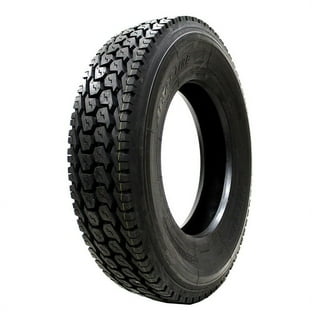High Quality Tire Shop Morris: Your Best Location for Tire Demands
High Quality Tire Shop Morris: Your Best Location for Tire Demands
Blog Article
Tire Service: Comprehending Tire Pressure Monitoring Equipments
Comprehending Tire Stress Monitoring Equipments (TPMS) is an important element of preserving optimal automobile performance and security on the roadway. With improvements in auto technology, TPMS has actually ended up being a standard attribute in modern-day vehicles, giving real-time info on tire stress degrees.

Relevance of TPMS
The importance of Tire Pressure Tracking Equipments (TPMS) exists in their capacity to improve lorry safety and security and efficiency through real-time tracking of tire pressure levels. Preserving the correct tire pressure is important for guaranteeing optimal handling, stopping, and overall safety and security of a lorry. TPMS gives chauffeurs with prompt comments on any kind of underinflated or overinflated tires, enabling timely adjustments to be made.
Components of TPMS
Comprising numerous important aspects, a Tire Stress Surveillance System (TPMS) works as an advanced safety feature in modern vehicles. The major components of a TPMS consist of sensing units, a control component, and a warning sign. Sensing units are generally located in the tire shutoff stem or connected to the wheel assembly, where they gauge tire pressure and send information to the control module. If it detects considerably low pressure in any of the tires, the control component processes this info and triggers a warning. The caution indication, usually a symbol on the dashboard, informs the chauffeur to examine the damaged tire or tires. Some progressed TPMS designs also present the real tire stress readings for every tire, providing vehicle drivers with real-time details to guarantee optimal tire performance and security. By keeping an eye on tire pressure continuously, TPMS helps avoid mishaps, reduces tire wear, and boosts fuel performance, making it an essential part for vehicle safety and security and performance.
Kinds of TPMS

On the various other hand, indirect TPMS counts on the automobile's wheel rate sensing units to check tire pressure. This system identifies underinflation by contrasting the rotational speeds of the wheels. Indirect TPMS is less costly than direct TPMS, as it makes use of existing sensing units within the car.
While straight TPMS supplies much more accurate readings, indirect TPMS is easier in design and usually needs less maintenance. Both systems have their restrictions and benefits, and the choice in between click to find out more them commonly relies on factors such as price, lorry make, and personal choice. Recognizing the distinctions between these two sorts of TPMS can aid car proprietors make informed choices pertaining to tire maintenance and safety and security.
TPMS Upkeep Tips
Reliable upkeep of TPMS is essential for guaranteeing optimum performance and safety and security of your car. Regularly examining the TPMS sensors for any kind of damage or rust is essential. Ensure that the sensors are clean and free from particles that can hinder their functioning. Additionally, it is recommended to check the sensing unit batteries regularly and change them as needed to ensure precise readings. Conduct routine examine the tire pressure degrees and contrast them with the TPMS analyses to ensure they are regular. Alter the system complying with the supplier's guidelines if there are any type of discrepancies. In addition, during tire rotation or substitute, see to it that the TPMS components are handled very carefully to stop any type of possible damage. Last check these guys out but not least, if the TPMS advising light brightens on the dashboard, deal with the problem without delay by checking the tire pressures and the total system for any kind of mistakes. By adhering to these maintenance tips, you can prolong the life expectancy of your TPMS and enhance the security of your driving experience.
Advantages of Correct Tire Pressure
Preserving correct tire stress, as highlighted in TPMS Upkeep Tips, is vital for reaping the many advantages connected with ideal tire stress degrees. Among the main benefits of keeping the right tire stress is improved fuel effectiveness. When tires are appropriately inflated, there is less rolling resistance, bring about much better fuel economic climate. Furthermore, appropriate tire pressure makes certain even tire wear, prolonging the lifespan of the tires and advertising safer driving problems. With the best tire pressure, cars likewise have better handling and traction, particularly in negative weather problems. This can improve general driving performance and safety and security for the chauffeur and travelers. Additionally, maintaining optimum tire pressure can add to a smoother and a lot next page more comfy adventure by minimizing resonances and noise brought on by underinflated tires. In conclusion, the advantages of proper tire stress go past just tire durability; they incorporate enhanced fuel effectiveness, boosted safety, far better automobile efficiency, and overall driving convenience.
Verdict
Finally, understanding tire stress surveillance systems (TPMS) is crucial for preserving optimum tire pressure and making certain automobile safety. By acknowledging the importance of TPMS, being familiar with its elements, recognizing the various kinds offered, sticking to correct maintenance tips, and understanding the advantages of preserving appropriate tire stress, motorists can improve their driving experience and extend the life expectancy of their tires. Proper tire stress is essential to reliable and secure lorry procedure.

Report this page